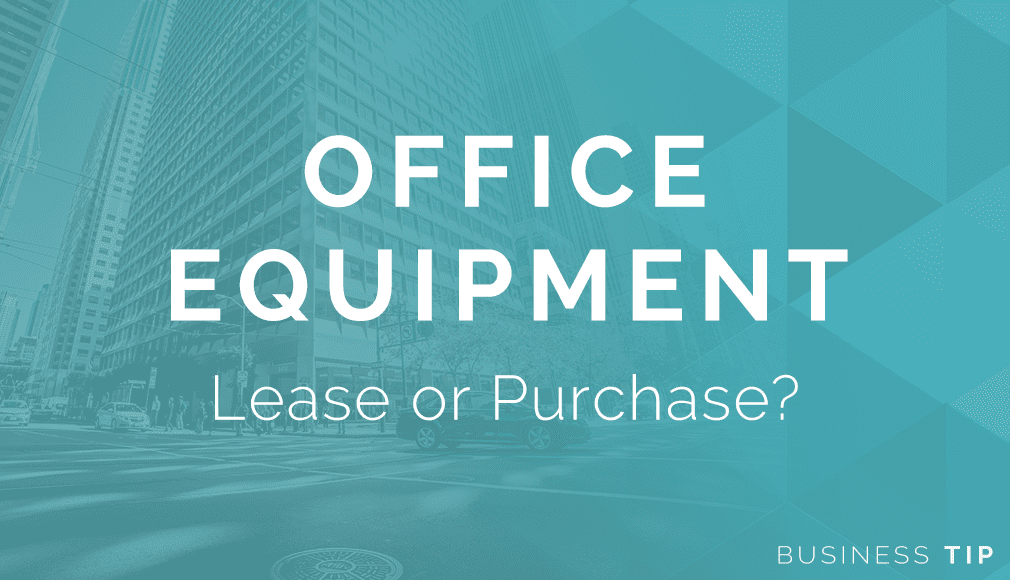
Learn what you have to consider in making the right decision for your business.
As a business owner, a lot more has to go into your thought process when deciding whether to lease or buy equipment, furniture, and machinery for your business. One will need to take into account available tax deductions, the cost of maintenance, depreciation, and its life span, or how quickly it will become outdated. Read below to see how you can determine the cost-benefit of leasing and purchasing.
For many companies, the decision to lease or buy office equipment bears directly on cash flows and profits. Copiers, phones, computers, printers, and networking software all must be either purchased or rented. How do you decide which is the best option for your business?
When you lease your equipment, you sign the lease agreement and start making payments. It’s simple. The company that leases equipment to you (the lessor) generally promises to maintain it. The lessor may even cover insurance and other costs during the lease term. With a lease, your business won’t need to take out a loan or make a down payment to use the equipment. Lease terms often roughly coincide with the expected service life of the leased assets. So by the time the equipment is returned to the leasing company, it may be fully depreciated. When the technology becomes obsolete, your firm won’t be stuck with equipment you can no longer use. You can return it.
Nevertheless, over the long run, leasing is often more expensive than buying. For example, you can buy desktop computers today for $1,000 each. Leasing the same equipment for three years at $50 per month will cost $1,800. Keep in mind, too, that your lease contract will likely require lease payments even if you stop using the equipment. (Breaking the lease may be an option, but often an expensive one.) Moreover, unless you establish the right to buy the equipment at a bargain price when the lease expires, your company won’t have equity in the leased items.
When purchasing a piece of equipment outright, you’re responsible for maintenance, insurance, loan payments and associated costs. But if the equipment retains its value, you can continue using it after any loans have been paid off. You don’t have to continue making lease payments and there’s no penalty for breaking a lease contract. When you no longer need the equipment, you may recover a portion of the cost by selling it to the highest bidder.
However, purchasing equipment requires cash today. To buy a telephone system, for example, you may need to deplete cash accounts or divert revenue to cover loan payments. That’s money that won’t be available for advertising, salaries, utilities, and all the other costs of operating your business.
The best way to determine if leasing or buying is right for your company is to determine the approximate net cost of the equipment, carefully including tax breaks and resale value. After this, consider other possibilities, like the product becoming obsolete or your need for the assets expiring before the lease does. If you would like to discuss the details, we’re here to help.
© MC 2017 | “Business Tips” are published monthly to provide useful business information. The business information contained in this site is of a general nature and should not be acted upon in your specific situation without further details and/or professional assistance.
Empowering business owners and individuals in South Jersey and Philadelphia to feel confident through proactive accounting and advisory solutions.